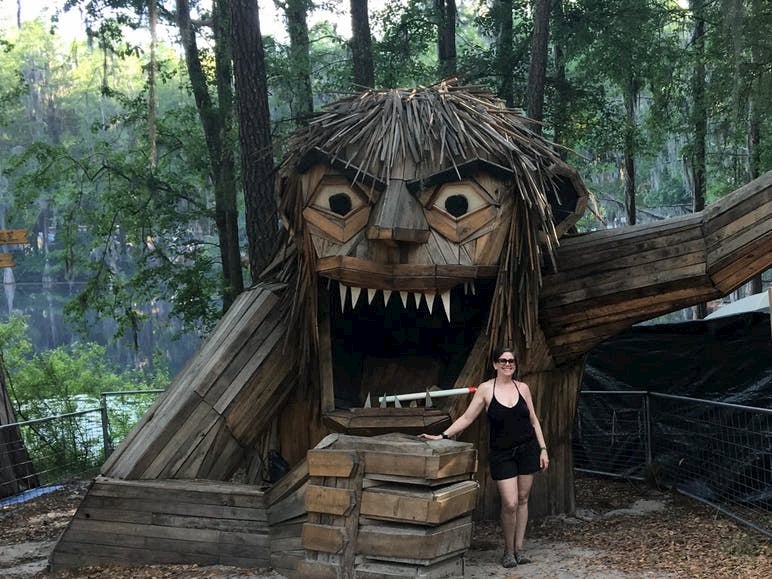This article about nature quotes was brought to you by GCI Outdoor, the makers of camping chairs that help you relax at the campsite after a long day of outdoor adventuring.
A recent study suggests that Americans are spending less time outside compared to a decade ago. We are working more and playing less. Books about adventure or quotes that ponder nature’s intricacies can help be the fuel to start planning more trips outdoors. These nature quotes will inspire you to get outside, embark on a new adventure, or perhaps look at nature with a new perspective.
Nature Quotes That Explain the Beauty of the Outdoors
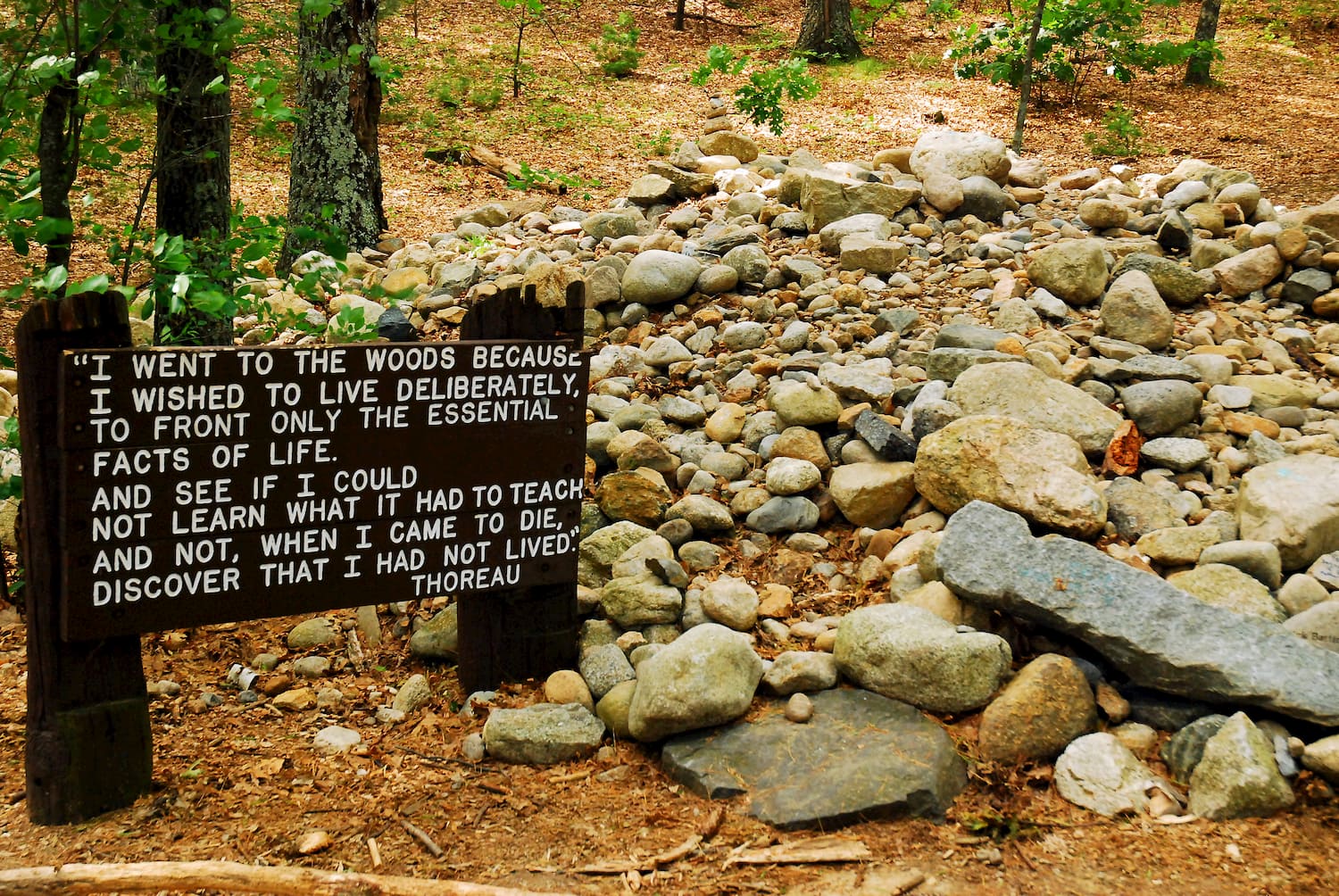
1. Barry Lopez
“Once in his life a man ought to concentrate his mind upon the remembered earth. He ought to give himself up to a particular landscape in his experience; to look at it from as many angles as he can, to wonder upon it, to dwell upon it. He ought to imagine that he touches it with his hands at every season and listens to the sounds that are made upon it. He ought to imagine the creatures there and all the faintest motions of the wind. He ought to recollect the glare of the moon and the colors of the dawn and dusk.”
Barry Lopez is an author and essayist best known for his far-flung travels and captivating nature writing. In his 1978 book Of Wolves and Men, Lopez transformed nature writing by weaving in science, indigenous traditions, history, folklore, and more into a single literary text.
2. Ansel Adams
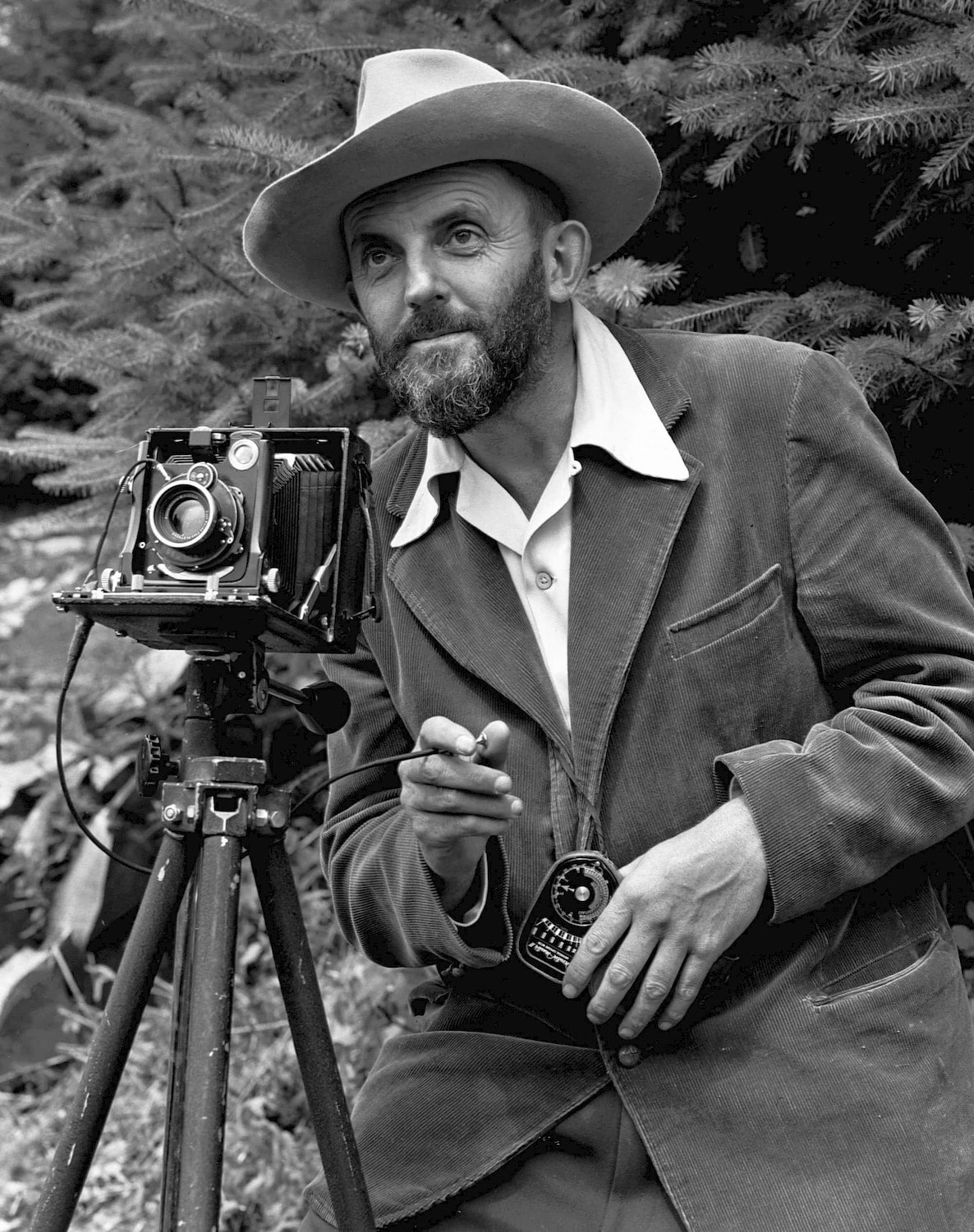
The whole world is, to me, very much “alive” – all the little growing things, even the rocks. I can’t look at a swell bit of grass and earth, for instance, without feeling the essential life – the things going on – within them. The same goes for a mountain, or a bit of the ocean, or a magnificent piece of old wood.”
Life-long conservationist and landscape photographer Ansel Adams played an important role in the growth of environmental consciousness in the mid-1920s. His signature black and white prints of the Sierra Nevada, Desert Southwest, and Teton Range are still cherished to this day. His images of the Kings River in the Sierra were successfully used to lobby congress for the dedication of a national park in Kings Canyon. The park was designated in 1940.
2. Everett Ruess
“I have not tired of the wilderness; rather I enjoy its beauty and the vagrant life I lead, more keenly all the time. I prefer the saddle to the streetcar and star-sprinkled sky to a roof, the obscure and difficult trail, leading into the unknown to any paved highway, and the deep peace of the wild to the discontent bred by cities.”
Everett Ruess was an American artist, poet, and writer best known for his bold solo travels in the American southwest. His mysterious disappearance in the rugged canyons near Escalante, Utah at age 20 have earned him somewhat of a cult following. When he vanished in 1934 without a trace, he left behind thousands of pages of journals, letters, and watercolor paintings and block prints. His disappearance remains a mystery today.
3. Wendell Berry

“True solitude is found in the wild places, where one is without human obligation. One’s inner voices become audible… In consequence, one responds more clearly to other lives.”
Poet, novelist, and environmentalist activist, Wendell Berry left a burgeoning career as a New York academic in the 1960s for farm life in rural Kentucky. His poetry celebrates the natural world and a life lived well in reverence to one’s community.
4. Edward Abbey
“May your trails be crooked, winding, lonesome, dangerous, leading to the most amazing view. May your mountains rise into and above the clouds.”
Edward Abbey famously spent a few years as a seasonal ranger at Arches National Monument (now Arches National Park) outside of Moab, Utah. His notes from his time at Arches formed the basis of his non-fiction work Desert Solitaire, and his nature quotes are recited by desert wanderers and environmental activists to this day.
5. Rachel Carson
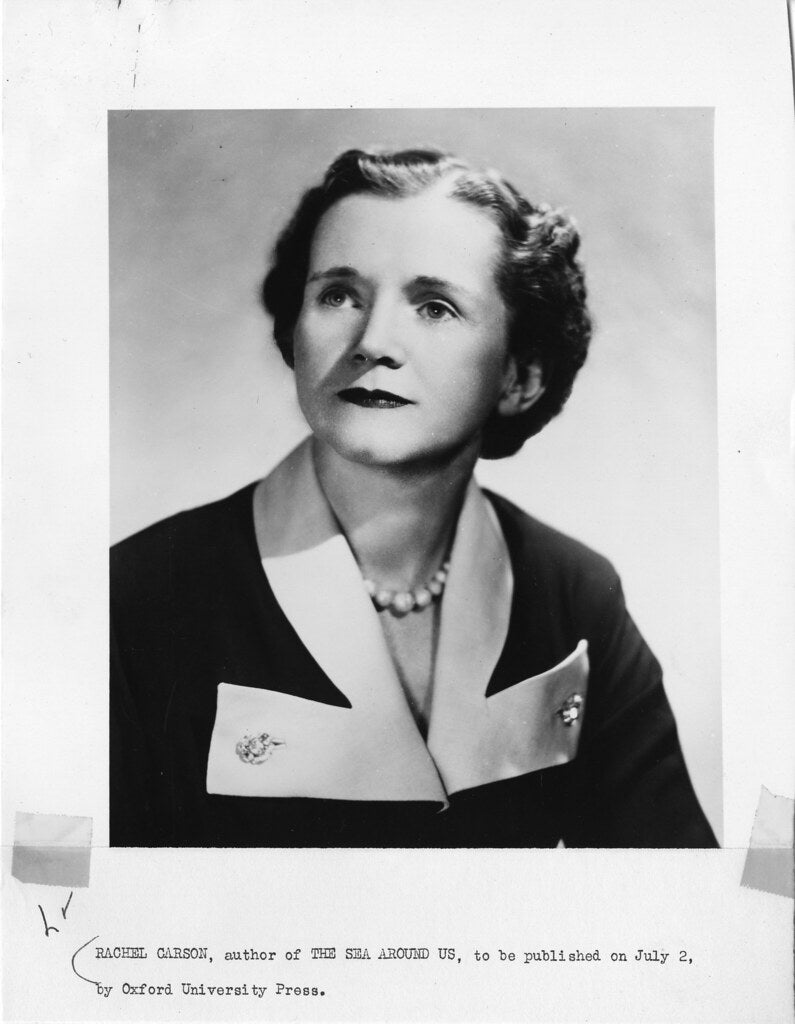
“Those who contemplate the beauty of the earth find reserves of strength that will endure as long as life lasts. There is something infinitely healing in the repeated refrains of nature — the assurance that dawn comes after night, and spring after winter.”
Published in 1963, Rachel Carson’s Silent Spring is considered the most important environmental book of the 20th century. Carson’s work raised awareness of the environmental effects of wide-spread pesticide use, which led to a nationwide ban on DDT in agriculture.
6. Terry Tempest Williams
“To be whole. To be complete. Wildness reminds us what it means to be human, what we are connected to rather than what we are separate from.”
Terry Tempest Willams is a writer, educator, and environmental activist. Her writing is strongly rooted in the American West and focuses on the protection of public lands, environmental justice, and our connection to landscapes. She co-edited a collection of wilderness essays with writer Stephen Trimble in 1995 entitled Testimony: Writers Speak On Behalf of Utah Wilderness, which Bill Clinton said influenced his decision to create the Grand Staircase-Escalante National Monument.
7. John Muir
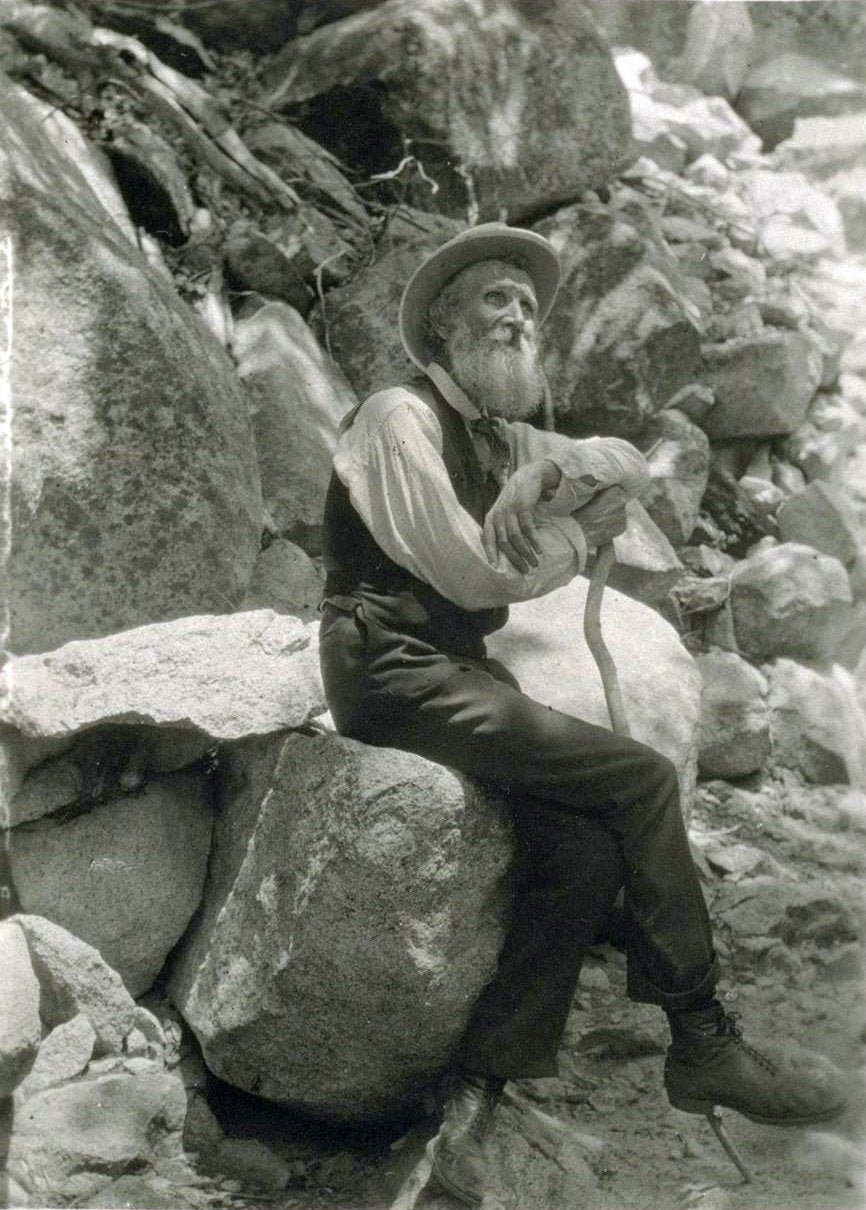
“Thousands of tired, nerve-shaken, over-civilized people are beginning to find out that going to the mountains is going home; that wildness is a necessity; and that mountain parks and reservations are useful not only as fountains of timber and irrigating rivers, but as fountains of life.”
John Muir was a naturalist, author, and environmental philosopher. He famously loved the mountains and successfully lobbied Theodore Rosevelt for the creation of Yosemite National Park in 1890. John Muir also founded the Sierra Club, America’s oldest and most influential conservation organization in 1892. He served as the club’s president until his death in 1914.
8. Ellen Meloy
“Of all the things I wondered about on this land, I wondered the hardest about the seduction of certain geographies that feel like home — not by story or blood but merely by their forms and colors. How our perceptions are our only internal map of the world, how there are places that claim you and places that warn you away. How you can fall in love with the light.”
Ellen Meloy was a nature writer, master storyteller and humorist. Her 2002 book, The Anthropology of Turquoise: Reflections on Desert, Sea, Stone, and Sky, was a finalist for the Pulitzer Prize.
9. Henry David Thoreau
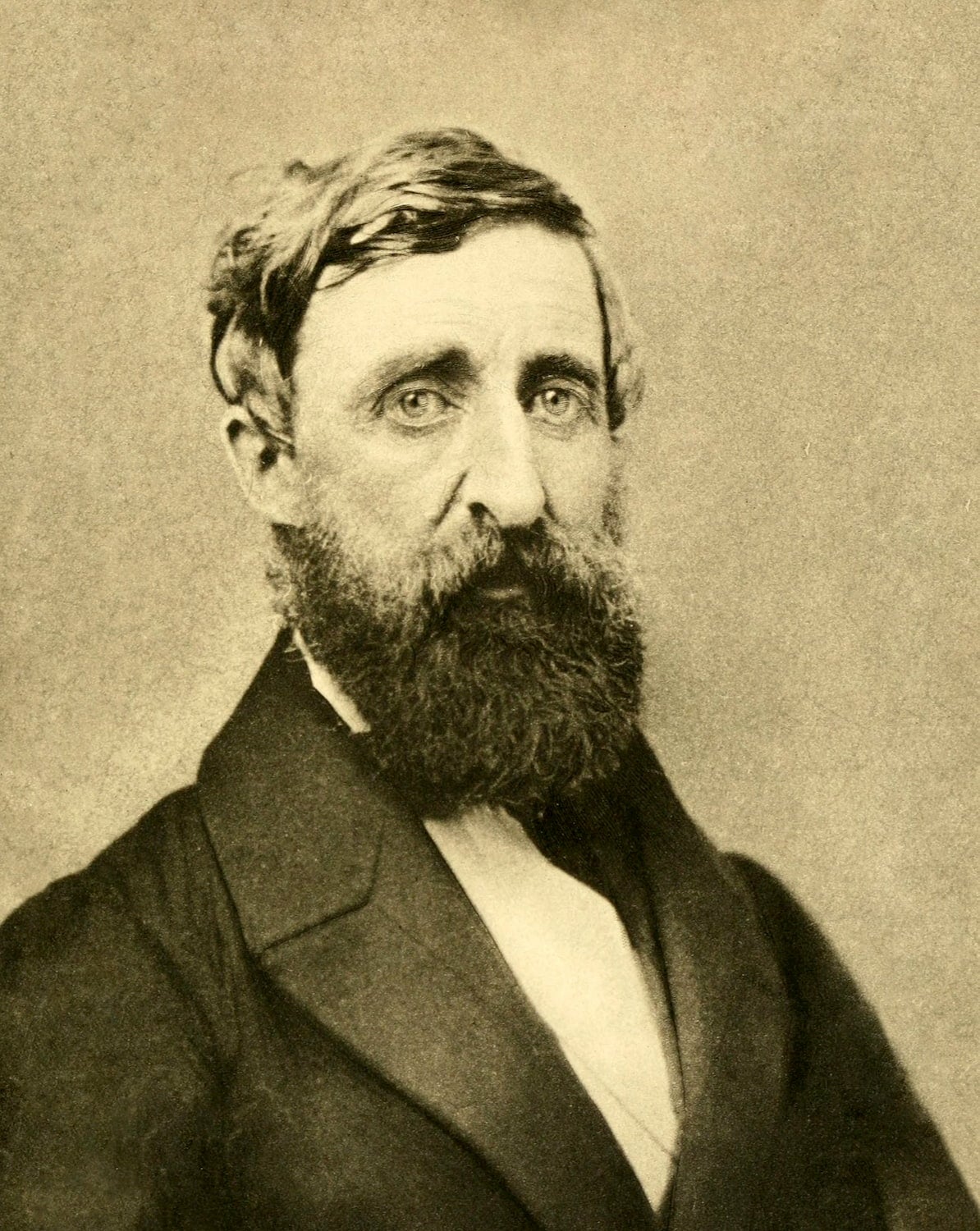
“I went to the woods because I wished to live deliberately, to front only the essential facts of life, and see if I could not learn what it had to teach, and not, when I came to die, discover that I had not lived. I did not wish to live what was not life, living is so dear; nor did I wish to practise resignation, unless it was quite necessary. I wanted to live deep and suck out all the marrow of life, to live so sturdily and Spartan-like as to put to rout all that was not life, to cut a broad swath and shave close, to drive life into a corner, and reduce it to its lowest terms…”
No list of nature quotes is complete without a quote by Henry David Thoreau. Thoreau was a naturalist, environmentalist, and writer famous for his book, Walden, about his years living in a cabin he built on Walden Pond near Concord, Massachusetts. First published in 1854, Thoreau’s Walden and his other works continue to inspire nature lovers, conservationists, and environmental writers to this day.
10. Nan Shepherd
“Yet often the mountain gives itself most completely when I have no destination, when I reach nowhere in particular, but have gone out merely to be with the mountain as one visits a friend with no intention but to be with him.”
Nan Shepherd was a Scottish writer and poet best known for her memoir, The Living Mountain, based on her time spent exploring the Cairngorm Mountains. Considered the finest book ever written about the British landscape, The Living Mountain is an incredible meditation on the magnificence of mountains.
11. Gretel Ehrlich
“Everything in nature invites us constantly to be what we are. We are often like rivers: careless and forceful, timid and dangerous, lucid and muddied, eddying, gleaming, still.”
Gretel Ehrlich is a poet and essayist whose award-winning book, The Solace of Open Spaces, details her time as a solitary sheepherder in Wyoming. Her unique view of the human connection to the natural world earned her recognition as one of the West’s foremost nature writers, and she’s been struck by nature not once, but twice.
This article about nature quotes was brought to you by GCI Outdoor
GCI makes stadium chairs that keep you comfortable at the campsite or at the next tailgating party.
Our recommendations are based on providing value to campers across the country. Some articles may contain affiliate links. By purchasing through our articles, you help support this camping magazine.
The Dyrt is the only camping app with all of the public and private campgrounds, RV parks, and free camping locations in the United States. Download now for iOS and Android.Popular Articles:
Articles on The Dyrt Magazine may contain links to affiliate websites. The Dyrt receives an affiliate commission for any purchases made by using such links at no additional cost to you the consumer.




